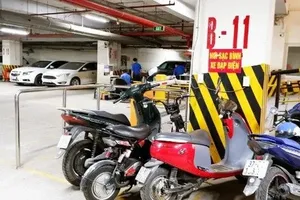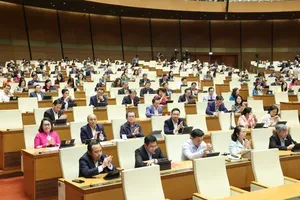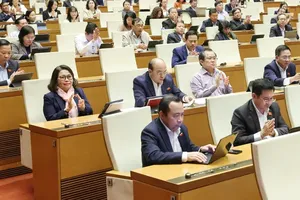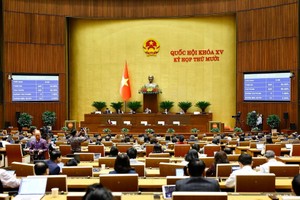Nguyen Van Binh, Governor of State Bank of Vietnam, on Tuesday, pledged to bring down bad debt rate at financial institutions to safe international levels of a minimum three percent of total liabilities.
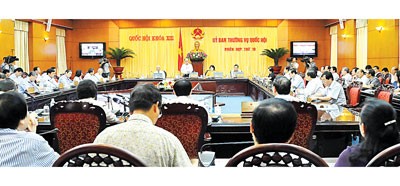
Mr. Binh was speaking at a question and answer session of the National Assembly (NA), whose 35 odd delegates queried the State Bank Governor about bad debt, bank restructuring and ability to access low interest loans.
Nguyen Sinh Hung, chairman of the National Assembly, asked Mr. Binh if by the end of this year or mid next year, the bad debt rate would reduce and by how much.
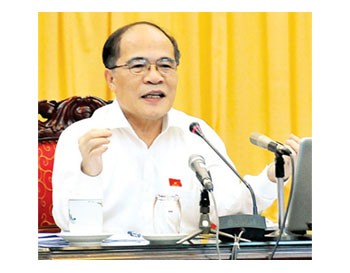
In response, Mr. Binh said that according to international safe practices, the threshold of bad debt is below three percent.
Reduction of bad debts depends on many factors. He believed conditions will be improved and bad debt rates will go down to safe levels during his current term in office.
Bad debt rate in the Vietnam banking system is alarming but not critical and the State Bank will not allow any financial institution to declare bankruptcy, he added.
Low interest loans
Several NA members proposed to the State Bank Governor to consider a decrease in interest rate and create conditions for households living near the poverty line to access credit funds.
Delegate Tran Khac Tam said that shrimp breeders in the Mekong Delta province of Soc Trang have been hit with disease and do not have capital to recover production. He asked if the State Bank can lower the interest rate to 10 percent a year on their loans.
Mr. Binh replied that several commercial banks have responded to the State Bank’s appeal to reduce loan interest rates.
However amidst the current situation, they must carefully consider further reduction of the interest rate for the macro economy to stabilize and inflation to go down.
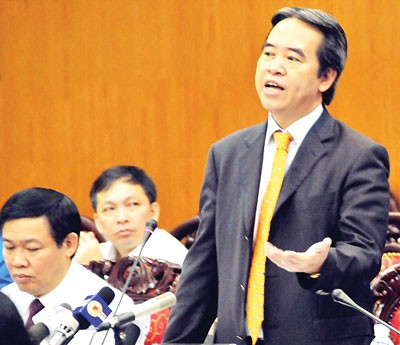
Besides, banks are not permitted to lower credit standards to prevent bad debts.
“According to several international financial institutions, Vietnam is reducing lending interest rates far too quickly, which may cause inflation to return,” he said.
The State Bank will task Agribank to allocate capital at reasonable interest rates for agricultural projects like coffee growing in the Central Highlands. Debt payments of shrimp breeders hit by diseases will be extended by 24 months.
Though banks have capital to support households living near the poverty line, there are no norms to specify who are near the poverty line, he added.
Nguyen Thi Kim Ngan, deputy chairwoman of the National Assembly, rejected his answer and said, “New norms on poor and those near the poverty line have already been set up. The State Bank and the Ministry of Labor, Invalids and Social Affairs must work closely to help such households’ access loans.”







